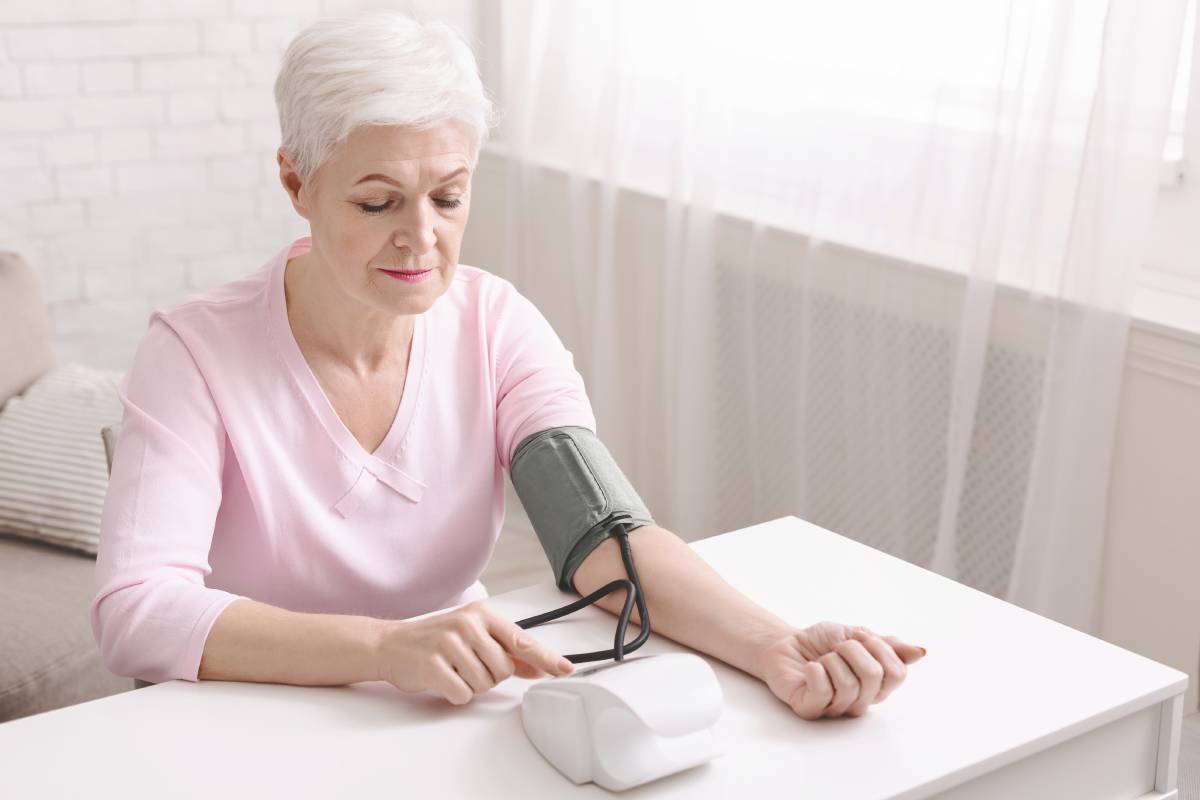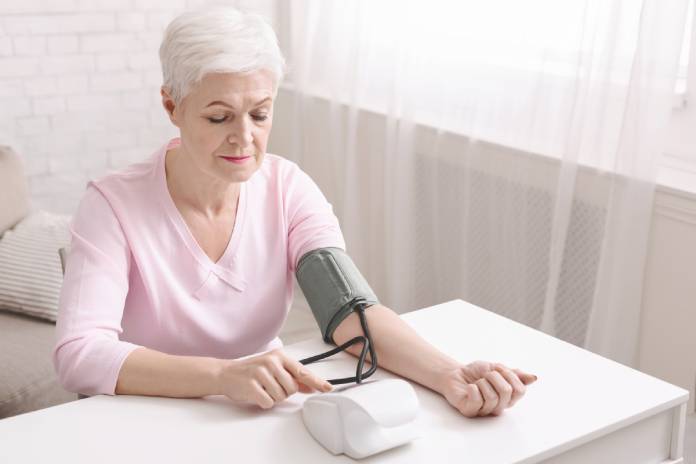
High blood pressure, or hypertension, is one of the most common but most poorly controlled health conditions affecting adults. About one-half of all adults in the United States have high blood pressure, and it’s estimated that more than half of those people don’t have their high blood pressure under control. Ironically, most patients know that their blood pressure is high and have seen their doctor regularly, but are still unable to manage their hypertension.
Blood pressure is described as the force, or resistance, of blood pushing against the walls of your arteries as your heart is pumping. Narrow or inflexible arteries increase that force, which raises your blood pressure. Hypertension develops when the resistance in your arteries rises above healthy levels.
Chances are you’ve had your blood pressure measured many times. Your reading consists of two numbers; systolic and diastolic pressure. Systolic pressure is a measure of the load on your arteries when your heart is beating. Diastolic pressure measures that load in between heart beats. A blood pressure reading is reported in systolic pressure over diastolic pressure (systolic/diastolic). The categories of blood pressure for adults are as follows:
- Healthy Less than 120/80
- Elevated Systolic pressure between 120 and 129, diastolic less than 80
- Stage 1 Hypertension Systolic pressure between 130 and 139, diastolic between 80 and 89
- Stage 2 Hypertension Systolic pressure 140 or higher, diastolic 90 or higher
- Hypertensive crisis Systolic pressure higher than 180, diastolic higher than 120.
Hypertension can be a dangerous condition because you may not notice its symptoms until you’ve had it for several years. For that reason, it’s important to get your blood pressure checked regularly. The symptoms of high blood pressure include headaches, feeling short of breath, dizziness, changes in your vision, chest pain or feeling short of breath, and unexpected bleeding, such as frequent nosebleeds or blood in your urine. Any of these symptoms require immediate medical attention.
The most common kind of hypertension is primary, which means that it doesn’t have a specific cause. However, scientists agree that there are a number of mechanisms that can contribute to primary hypertension, including a genetic predisposition, changes related to aging or body chemistry, and lifestyle choices. One of the most widely accepted contributors to high blood pressure is chronic stress. That’s because stress sets off a cascade of hormones that raise your heart rate and narrow your blood vessels, which over time can cause hypertension.
Secondary hypertension is caused by an underlying physical problem, such as kidney disease, thyroid problems, sleep apnea, adrenal gland imbalances, medication side effects, and alcohol or chemical abuse. Secondary hypertension may occur quickly, and tends to be more serious than primary hypertension.
Treating High Blood Pressure
High blood pressure can be hard to manage, and traditional treatment usually involves medication. Many patients go through several medications, medication combinations, and dosages before they find a treatment that works for them. There are several classes of drugs to treat hypertension, each with different actions. For example, beta blockers slow and reduce the force at which your heart beats. Diuretics help reduce fluid in your body. ACE inhibitors help your blood vessels relax, and calcium channel blockers reduce the amount of calcium reaching your heart and causes less forceful heartbeats.
Because high blood pressure can be a challenge to get under control and because many of the medications come with an array of side-effects, some patients have turned to more natural treatments to lower their blood pressure. The good news is that there are a number of drug-free treatments and lifestyle changes that can help, most notably Chinese medicine and acupuncture.
Researchers have discovered that acupuncture can effectively reduce high blood pressure through a number of actions:
- Scientists have found that acupuncture helps lower blood pressure by reducing the activity of renin, a chemical that plays a role in regulating fluid in your body.
- Acupuncture has also been found to decrease oxidative stress, which creates a molecular imbalance in between free radicals and antioxidants in your body. In addition to cell and tissue damage oxidative stress can alter the elasticity of your blood vessel walls.
- Acupuncture helps reduce inflammation, which plays a role in the development of arterial plaques and blood clots.
- Stress reduction measures are a key component in reducing primary hypertension, and a large body of research has found that acupuncture increases the circulation of neurotransmitters that effectively reduce stress and regulate mood.
While acupuncture can play an important role in lowering your blood pressure, the changes may not be permanent. For that reason Chinese herbs are often a good addition to your plan, because they help to extend your acupuncture treatment, and are formulated for your specific needs. In conjunction with acupuncture and herbs, Chinese dietary therapy, exercise, and maintaining a healthy weight are also key. The bottom line is that with or without medications, lowering your blood pressure may take a combination of treatments, including acupuncture and other natural therapies.

Cindy Chamberlain is an acupuncturist in Overland Park, KS and the founder of Eastern Healing Solutions, LLC. She is licensed in Kansas and Missouri and has been practicing traditional Chinese medicine since 1996.


